| Architect |
Adrian Gilbert
Scott |
| Date
Built |
1957 |
| Location |
Kensington High Street |
| Description |
|
The original Lady of Victories Catholic
church was opened in the Kensington district
in 1869. Until the Westminster
Cathedral was built in 1903, it was the
foremost Catholic church in England.
On the 13th of September 1940 the Luftwafer
dropped four incendiary bombs on the church
and within two and a half hours the building
was completely devastated and burned to the
ground. Rebuilding wasn't possible
until after the was but in 1952 Adrian
Gilber Scott was commissioned to design this
church that sits just off Kensington High
Street. It was opened as the Parish
Church of Kensington by Cardinal Archbishop
William Godfrey on the 16th of April 1959.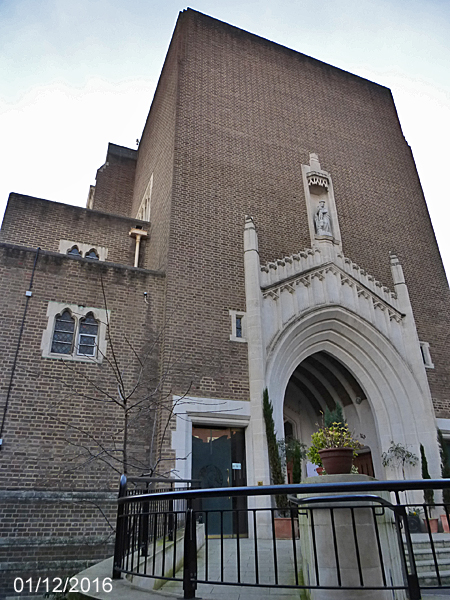 Historic England
listed the building in 2016 at Grade II
for a number of reasons including, from
an architectural point of view, the fact
that it is, "... a striking
and boldly massed church in a
stripped-back post-war style,
relieved by restrained traditional
Perpendicular Gothic detailing in
Portland stone, which aptly
demonstrates the post-war transition
from traditional to modern forms in
ecclesiastical architecture; also a
good quality 1930s entrance screen"
They also cite the importance of the
architect who they describe as, "...
a noted ecclesiastical
architect of the early to mid C20,
who trained under Temple Moore and
specialised in commissions for the
Roman Catholic Church."
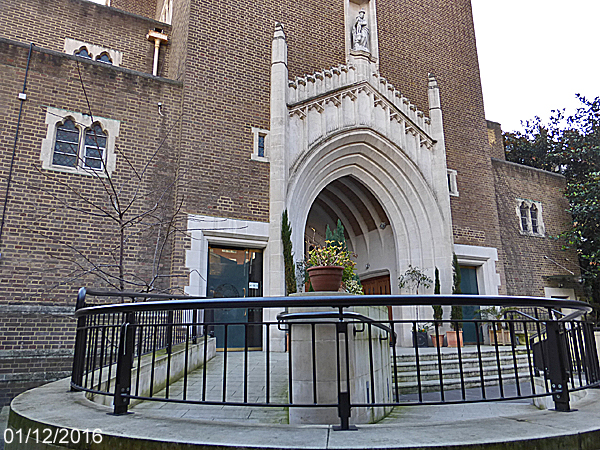 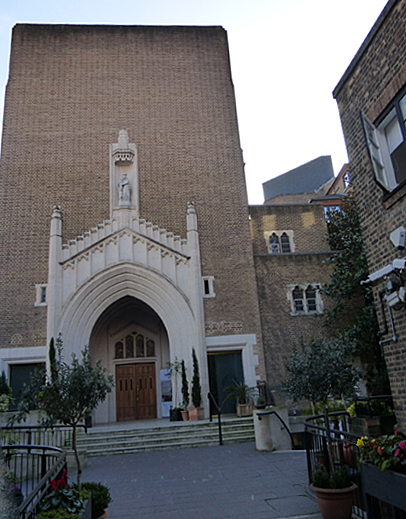 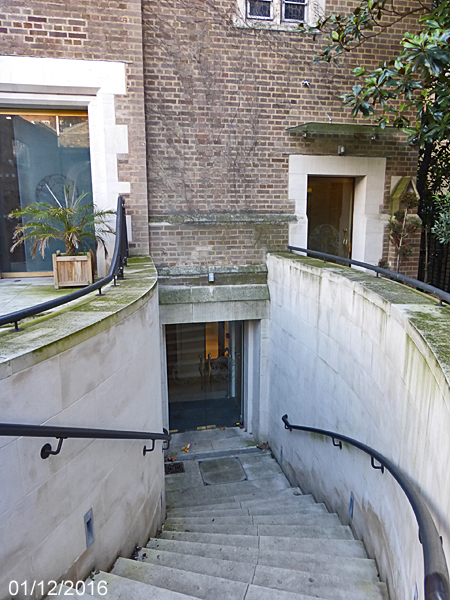 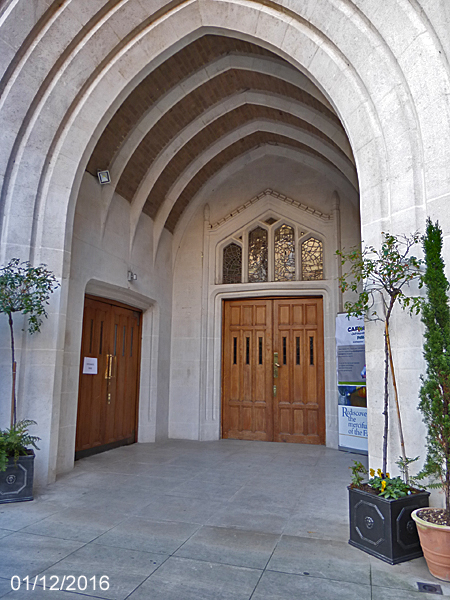 ********************** Historic England when
listing the church said of the inside
that, "...side porches and a
central entrance open directly into
a lofty nave of five bays, having a
west gallery but without a narthex.
There are no aisles in the
conventional sense, rather an
enfilade of shoulder-arched openings
to the north and south, cut into a
series of deep projecting piers
which articulate the bays and rise
to form a massive arcade of pointed
arches to either side of the nave."
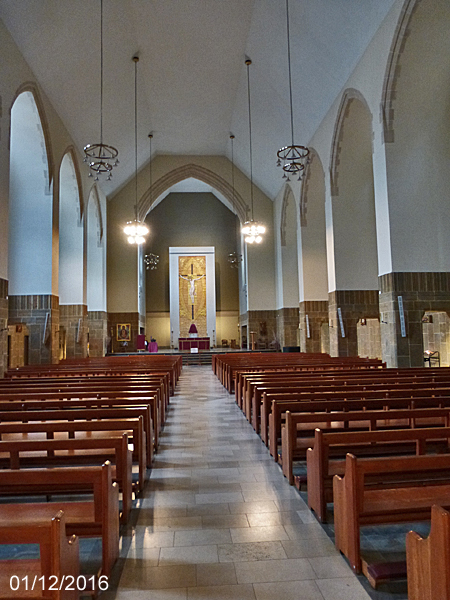 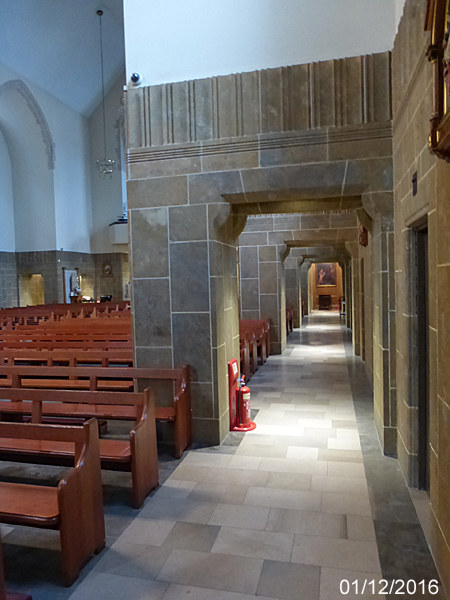 "A large
freestanding artwork by Stephen
Foster is located to the rear of the
sanctuary, comprising a depiction of
the Crucifixion on a tall painted
relief panel.
"
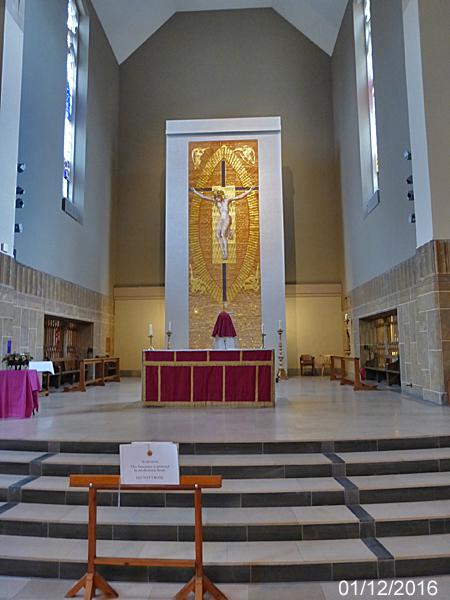 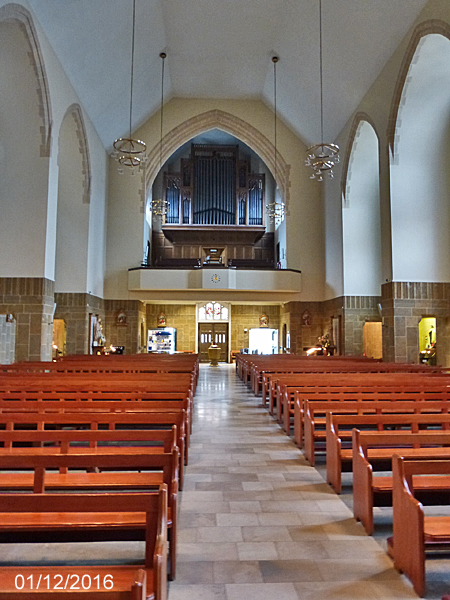 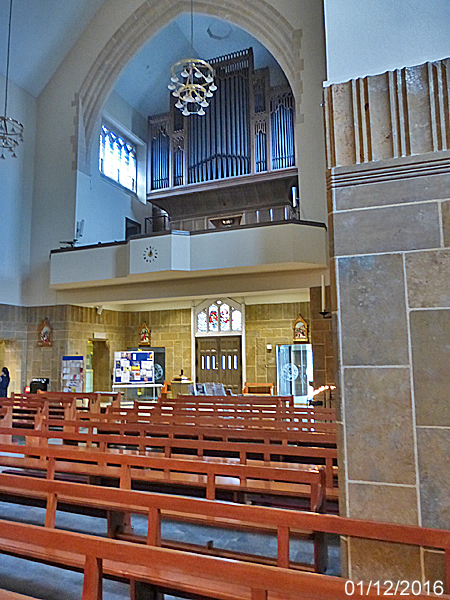 "Windows are
leaded and stained, by Charles F
Blakeman, depicting a variety of
Biblical scenes and saints."
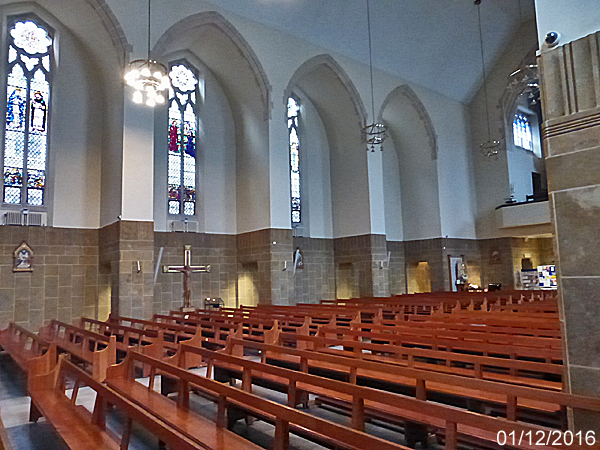 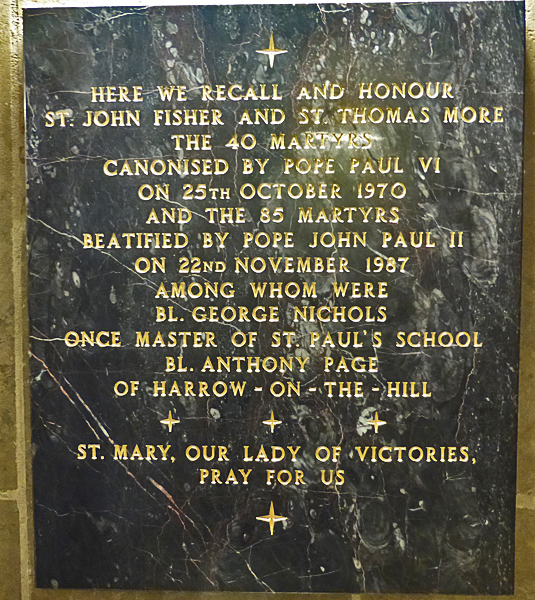 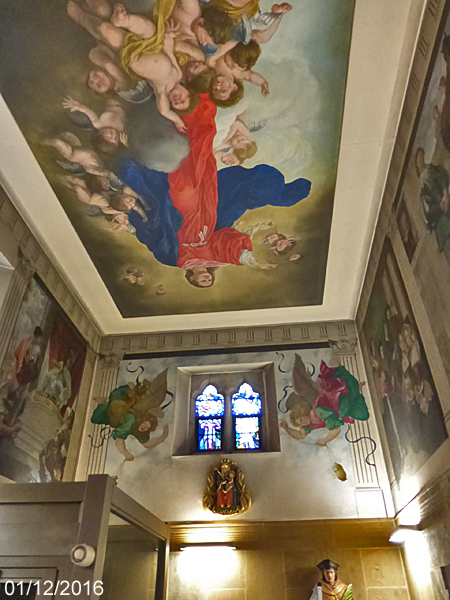 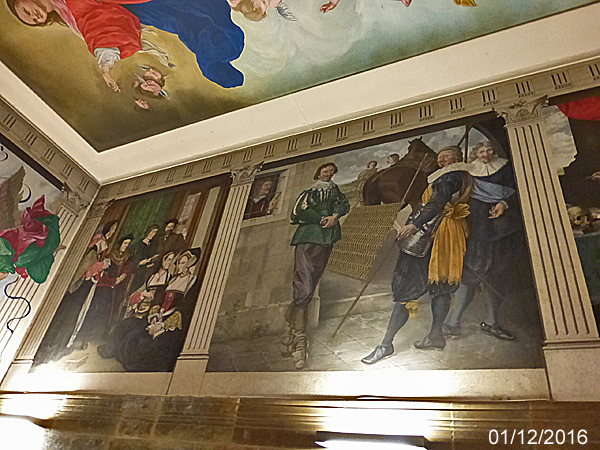 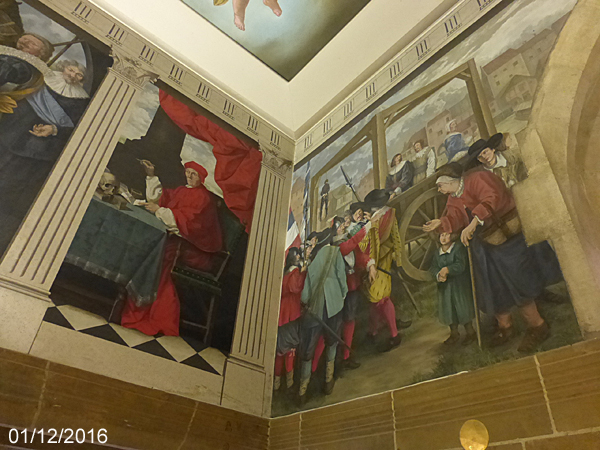 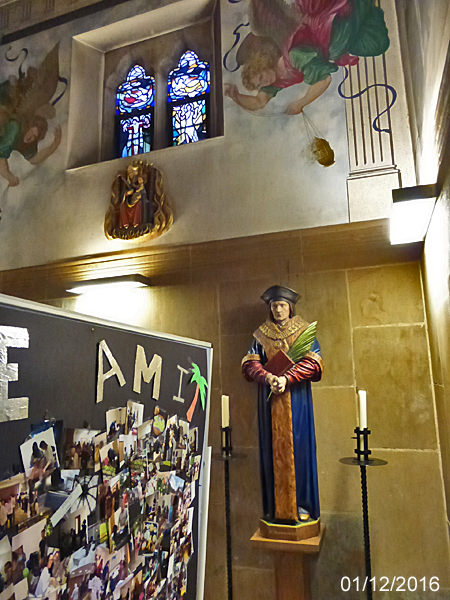 |
|
|
Our Lady of Victories
R.C. Church, Kensington, London
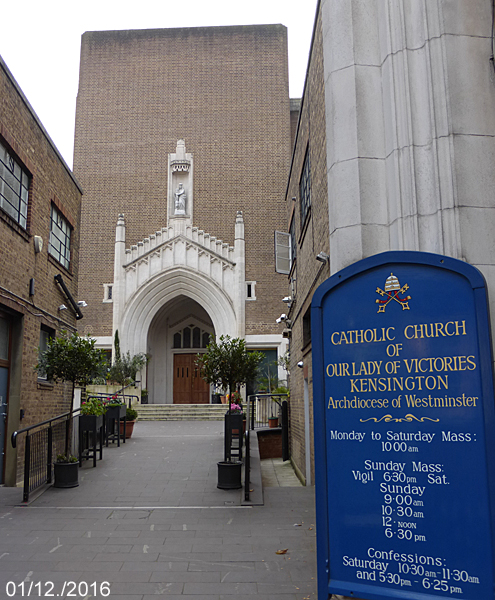 |
